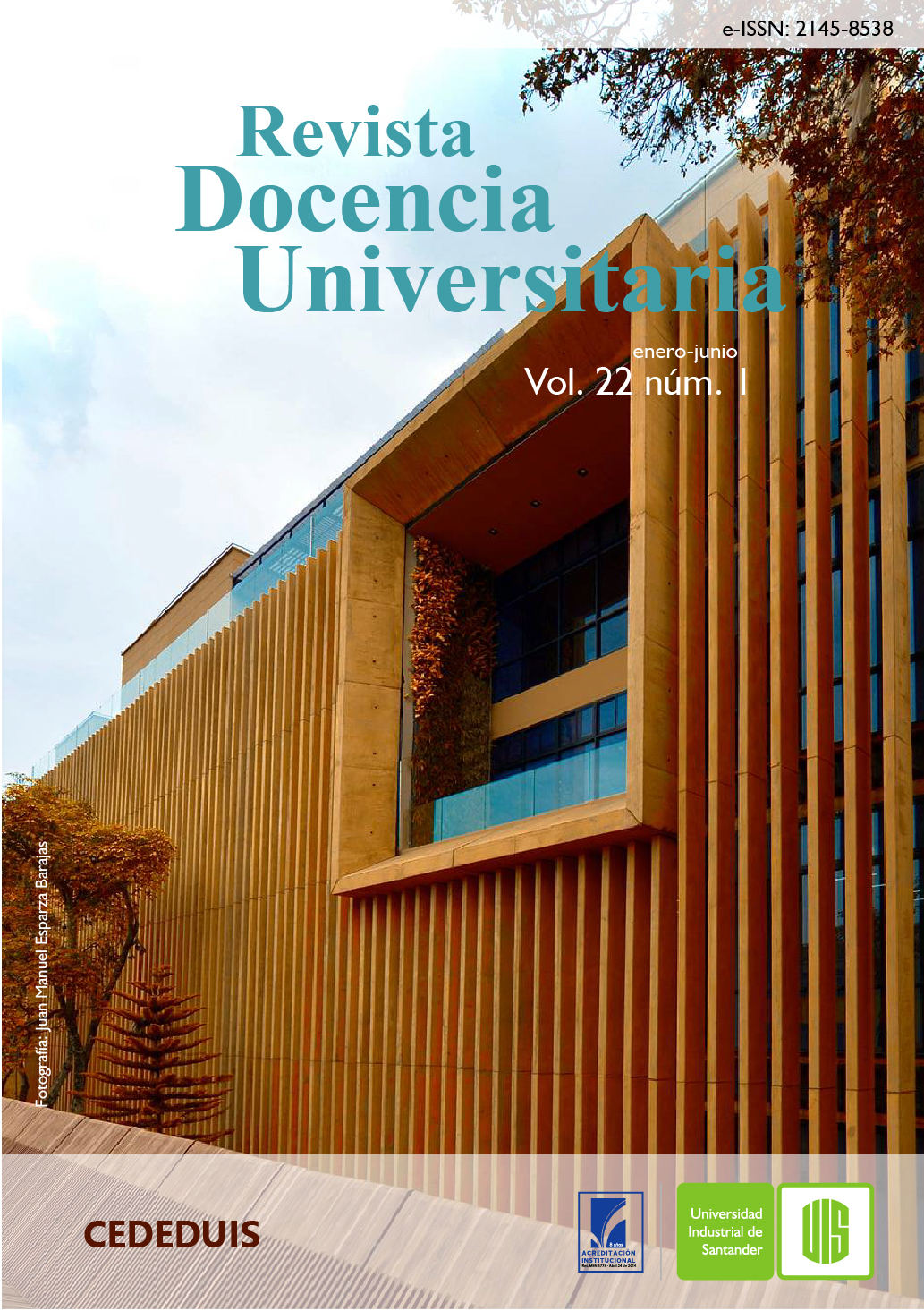Published 2021-06-30
Keywords
- reading competence,
- didactics,
- augmented reality
How to Cite
Copyright (c) 2021 Revista Docencia Universitaria

This work is licensed under a Creative Commons Attribution 4.0 International License.
Abstract
This document is framed in the evident problem in reading competence and the objective is to strengthen said ability through a didactic proposal mediated by the application of augmented reality (MEN, 2003). The problem is evident when reviewing the results of the SABER tests of the last years of the I.E Rosa Mesa de Mejía. The research has a mixed approach, from a methodological design of concurrent triangulation, where the qualitative and quantitative method is applied simultaneously, collecting and analyzing the data. The pre-test diagnostic instruments and the survey indicate that: 44% have problems in the semantic component, 28% in the syntactic and 24% in the pragmatic. To strengthen reading skills, books were worked with Augmented Reality and textual typology with R.A. The implementation of methodologies that involve AR strengthen reading skills, since it generates motivation and interest, participation, commitment and willingness to learn (Carracedo & Méndez, 2012).
Downloads
References
- Acuña, B. P. (2020). Flexibilidad en Apps de cuentos de realidad aumentada. Venezuela: Utopía y Praxis Latinoamericana, 25(13).
- Arredondo, L. A. L. (2020). Realidad Aumentada Móvil: Una estrategia pedagógica en el ámbito universitario. Revista Técnica de la Facultad de Ingeniería, Universidad del Zulia, 43(3), 142-149.
- AugmentedClass (2014). El referente. https://elreferente.es/startup/augmented-class/
- Bautista, L. A., Campos, H. Á., Rodríguez, N. S., Torres, A. N., & Carriazo, V. M. (2019). Didáctica y aplicaciones de realidad aumentada en la educación superior en Colombia. Fundación Universitaria del Área Andina.
- Cabero, J., & Obrador, A. J. (2016). Realidad aumentada aplicada a la ense ̃nanza Delaware la medicina. ELSERVIER.
- Castañeda, L., Salinas, J. y Adell, J. (2020). Hacia una visión contemporánea de la Tecnología Educativa. Digital Education, 37. https://doi.org/10.1344/der.2020.37.240-268
- Enciso, A. (2018). Estrategias para la animación a la lectura a través de la literatura infantil de Jairo Aníbal Niño. Universidad Santo Tomas.
- Freire, P. (2004). Pedagogía de la Autonomía. Paz e Terra S.A.
- Lomas, C. (1999). Cómo enseñar a hacer cosas con palabras. Paidós.
- Ministero de Educación Nacional (2003). Estándares Básicos en Competencias para el Lenguaje. Ministerio de Educación Nacional.
- Ministero de Educación Nacional (2014). Lineamientos Curriculares de Lengua Castellana. Ministerio de Educación Nacional.
- Mosquera A. (2019). Tendencias investigativas en educación en Colombia: revisión documental. Sophia, 15(1). https://www.redalyc.org/jatsRepo/4137/413759559001/html/index.html.
- Payer, M. (2005). Teoría del constructivismo social de Lev Vygotsky en comparación con la teoría de Piaget. Universidad Central.
- Saldarriaga-Zambrano P. J., Bravo-Cedeño, G del R. & Loor-Rivadeneira, M R. (2016). La teoría constructivista de Jean Piaget y su significación para la pedagogía contemporánea. Revista científica dominio de las ciencias, (2), 127-137.
- Sampieri, R. H., Collado, C. F., & Lucio, P. B. (2014). Metodología de la Investigación. McGRA W-HILL / INTERAMERICANA EDITORES S.A DE C.V.
- Siemens, G. (2004). Conectivismo: Una teoría de aprendizaje para la era.

